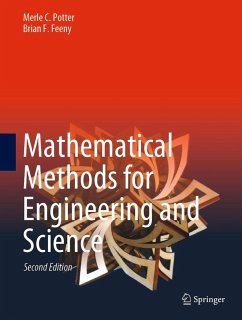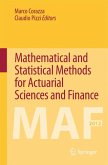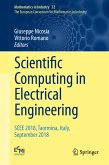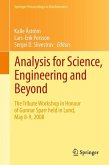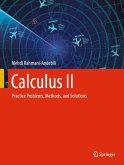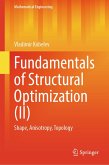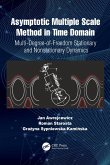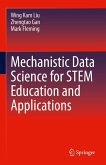56,95 €
56,95 €
inkl. MwSt.
Sofort per Download lieferbar

28 °P sammeln
56,95 €
Als Download kaufen

56,95 €
inkl. MwSt.
Sofort per Download lieferbar

28 °P sammeln
Jetzt verschenken
Alle Infos zum eBook verschenken
56,95 €
inkl. MwSt.
Sofort per Download lieferbar
Alle Infos zum eBook verschenken

28 °P sammeln
- Format: PDF
- Merkliste
- Auf die Merkliste
- Bewerten Bewerten
- Teilen
- Produkt teilen
- Produkterinnerung
- Produkterinnerung

Bitte loggen Sie sich zunächst in Ihr Kundenkonto ein oder registrieren Sie sich bei
bücher.de, um das eBook-Abo tolino select nutzen zu können.
Hier können Sie sich einloggen
Hier können Sie sich einloggen
Sie sind bereits eingeloggt. Klicken Sie auf 2. tolino select Abo, um fortzufahren.

Bitte loggen Sie sich zunächst in Ihr Kundenkonto ein oder registrieren Sie sich bei bücher.de, um das eBook-Abo tolino select nutzen zu können.
- Geräte: PC
- ohne Kopierschutz
- eBook Hilfe
- Größe: 10.7MB
Andere Kunden interessierten sich auch für
![Mathematical and Statistical Methods for Actuarial Sciences and Finance (eBook, PDF) Mathematical and Statistical Methods for Actuarial Sciences and Finance (eBook, PDF)]() Mathematical and Statistical Methods for Actuarial Sciences and Finance (eBook, PDF)88,95 €
Mathematical and Statistical Methods for Actuarial Sciences and Finance (eBook, PDF)88,95 €![Scientific Computing in Electrical Engineering (eBook, PDF) Scientific Computing in Electrical Engineering (eBook, PDF)]() Scientific Computing in Electrical Engineering (eBook, PDF)72,95 €
Scientific Computing in Electrical Engineering (eBook, PDF)72,95 €![Analysis for Science, Engineering and Beyond (eBook, PDF) Analysis for Science, Engineering and Beyond (eBook, PDF)]() Analysis for Science, Engineering and Beyond (eBook, PDF)72,95 €
Analysis for Science, Engineering and Beyond (eBook, PDF)72,95 €![Calculus II (eBook, PDF) Calculus II (eBook, PDF)]() Mehdi Rahmani-AndebiliCalculus II (eBook, PDF)40,95 €
Mehdi Rahmani-AndebiliCalculus II (eBook, PDF)40,95 €![Fundamentals of Structural Optimization (II) (eBook, PDF) Fundamentals of Structural Optimization (II) (eBook, PDF)]() Vladimir KobelevFundamentals of Structural Optimization (II) (eBook, PDF)104,95 €
Vladimir KobelevFundamentals of Structural Optimization (II) (eBook, PDF)104,95 €![Asymptotic Multiple Scale Method in Time Domain (eBook, PDF) Asymptotic Multiple Scale Method in Time Domain (eBook, PDF)]() Jan AwrejcewiczAsymptotic Multiple Scale Method in Time Domain (eBook, PDF)45,95 €
Jan AwrejcewiczAsymptotic Multiple Scale Method in Time Domain (eBook, PDF)45,95 €![Mechanistic Data Science for STEM Education and Applications (eBook, PDF) Mechanistic Data Science for STEM Education and Applications (eBook, PDF)]() Wing Kam LiuMechanistic Data Science for STEM Education and Applications (eBook, PDF)44,95 €
Wing Kam LiuMechanistic Data Science for STEM Education and Applications (eBook, PDF)44,95 €-
-
-
Produktdetails
- Verlag: Springer Nature Switzerland
- Seitenzahl: 500
- Erscheinungstermin: 9. März 2023
- Englisch
- ISBN-13: 9783031261510
- Artikelnr.: 67592811
Dieser Download kann aus rechtlichen Gründen nur mit Rechnungsadresse in A, B, BG, CY, CZ, D, DK, EW, E, FIN, F, GR, HR, H, IRL, I, LT, L, LR, M, NL, PL, P, R, S, SLO, SK ausgeliefert werden.
- Herstellerkennzeichnung Die Herstellerinformationen sind derzeit nicht verfügbar.
< b="">
Merle C. Potter graduated with honors from MTU in 1958 with a B.S. degree in Mechanical Engineering and continued his education in Engineering Mechanics earning an M.S. degree from MTU in 1961. He continued his graduate education at the University of Michigan and earned a second M.S. degree in Aerospace Engineering in 1964 and a Ph.D. in Engineering Mechanics in 1965. Merle began his teaching career at Michigan Tech as an instructor in 1958. While pursuing his graduate degrees from the University of Michigan, he held the positions of the teaching fellow and instructor. Merle began an over thirty-year career with Michigan State University in 1965 as an assistant professor. He was promoted to an associate professor in 1969 and became a full professor in 1971. Merle retired and was given the title of the professor emeritus in 1994 and assisted the university as a visiting professor until 1998. For over forty years, Merle has had a significant influence on the engineering profession both as a professor and an author. He has written and co-authored many books on fluid mechanics, mathematical methods, thermodynamics, differential equations and review guides for the GRE, GMAT, fundamentals of engineering, and professional engineering exams. Merle has published nearly twenty archived journal papers, was the advisor for fourteen Ph.D. students, and was the recipient of several. NSF grants to support his research efforts. Merle was a member of Tau Beta Pi and ASME while a student at MTU. He has also participated in Phi Eta Sigma, Phi Kappa Phi, Pi Tau Sigma, Sigma Xi, ASEE, and AAM and was an active member of many major MSU committees. Merle has been honored with the Ford Faculty Scholarship in l961, the Teacher Scholar Award in 1969, the ASME Centennial Award in 1980, and the James Harry Potter Gold Medal in 2008.
Brian F. Feeny is a professor in the Department of Mechanical Engineering at Michigan State University. He obtained a B.S. with honors in Engineering Mechanics from the University of Wisconsin in 1984, an M.S. in Engineering Mechanics from Virginia Tech in 1986, and his Ph.D. in Theoretical and Applied Mechanics from Cornell University in 1990. He then held a postdoc in the Institute of Robotics at the Swiss Federal Institute of Technology (ETH) in Zürich and joined Michigan State University as an assistant professor in 1992. During his time at MSU, Brian has held visiting appointments at the National Institute of Standards and Technologies Manufacturing Engineering Lab and the Huazhong Agricultural University. He is a fellow of the American Society of Mechanical Engineers (ASME). He served as the chair of the ASME Technical Committee on Vibration and Sound and as an associate editor the ASME Journal of Vibration and Acoustics and the ASME Journal of Computational and Nonlinear Dynamics. He directs his department's student exchange program between MSU and RWTH Aachen. His research is in vibrations, and he has published and supervised graduate students in areas including modal decomposition, parametric excitation, chaos, vibration with friction, wind-turbine blade vibration, pendulum vibration absorbers, and bio-locomotion.
^
Merle C. Potter graduated with honors from MTU in 1958 with a B.S. degree in Mechanical Engineering and continued his education in Engineering Mechanics earning an M.S. degree from MTU in 1961. He continued his graduate education at the University of Michigan and earned a second M.S. degree in Aerospace Engineering in 1964 and a Ph.D. in Engineering Mechanics in 1965. Merle began his teaching career at Michigan Tech as an instructor in 1958. While pursuing his graduate degrees from the University of Michigan, he held the positions of the teaching fellow and instructor. Merle began an over thirty-year career with Michigan State University in 1965 as an assistant professor. He was promoted to an associate professor in 1969 and became a full professor in 1971. Merle retired and was given the title of the professor emeritus in 1994 and assisted the university as a visiting professor until 1998. For over forty years, Merle has had a significant influence on the engineering profession both as a professor and an author. He has written and co-authored many books on fluid mechanics, mathematical methods, thermodynamics, differential equations and review guides for the GRE, GMAT, fundamentals of engineering, and professional engineering exams. Merle has published nearly twenty archived journal papers, was the advisor for fourteen Ph.D. students, and was the recipient of several. NSF grants to support his research efforts. Merle was a member of Tau Beta Pi and ASME while a student at MTU. He has also participated in Phi Eta Sigma, Phi Kappa Phi, Pi Tau Sigma, Sigma Xi, ASEE, and AAM and was an active member of many major MSU committees. Merle has been honored with the Ford Faculty Scholarship in l961, the Teacher Scholar Award in 1969, the ASME Centennial Award in 1980, and the James Harry Potter Gold Medal in 2008.
Brian F. Feeny is a professor in the Department of Mechanical Engineering at Michigan State University. He obtained a B.S. with honors in Engineering Mechanics from the University of Wisconsin in 1984, an M.S. in Engineering Mechanics from Virginia Tech in 1986, and his Ph.D. in Theoretical and Applied Mechanics from Cornell University in 1990. He then held a postdoc in the Institute of Robotics at the Swiss Federal Institute of Technology (ETH) in Zürich and joined Michigan State University as an assistant professor in 1992. During his time at MSU, Brian has held visiting appointments at the National Institute of Standards and Technologies Manufacturing Engineering Lab and the Huazhong Agricultural University. He is a fellow of the American Society of Mechanical Engineers (ASME). He served as the chair of the ASME Technical Committee on Vibration and Sound and as an associate editor the ASME Journal of Vibration and Acoustics and the ASME Journal of Computational and Nonlinear Dynamics. He directs his department's student exchange program between MSU and RWTH Aachen. His research is in vibrations, and he has published and supervised graduate students in areas including modal decomposition, parametric excitation, chaos, vibration with friction, wind-turbine blade vibration, pendulum vibration absorbers, and bio-locomotion.
^
Chapter 1: Ordinary Differential Equations.- Chapter 2: Power Series Methods.- Chapter 3: Laplace Transforms.- Chapter 4: Matrices and Determinants.- Chapter 5: Vector Analysis.- Chapter 6: Partial Differential Equations.- Chapter 7: Complex Variables.- Chapter 8: Numerical Methods.-Bibliography.- Appendix.- Answers to Selected Problems.- Index.
Chapter 1: Ordinary Differential Equations.- Chapter 2: Power Series Methods.- Chapter 3: Laplace Transforms.- Chapter 4: Matrices and Determinants.- Chapter 5: Vector Analysis.- Chapter 6: Partial Differential Equations.- Chapter 7: Complex Variables.- Chapter 8: Numerical Methods.-Bibliography.- Appendix.- Answers to Selected Problems.- Index.
